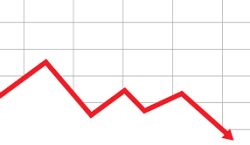



3 weeks ago, the Reserve Bank issued a directive ordering mobile money operators to ban agents that were transacting above a threshold of ZW$100 000. After effecting the ban EcoCash would have to register once again to meet certain KYC demands.
EcoCash responded by filing an urgent chamber application to the high court seeking the reversal of the RBZ’s directive. Simply put. EcoCash was saying the directive was unlawful because the RBZ did not consult them beforehand and the impact of the directive on agents and the country’s economy would be negative.
There has been some delays in getting an outcome from the urgent chamber application but earlier today the High Court rejected EcoCash’s application.
After EcoCash filed this application, the RBZ fired back on the basis of the following five points:
Justice Chinamora gave out his ruling after breaking down all five points
Following the RBZs stance after EcoCash had filed the urgent chamber application they highlighted the following; They complied with the directive so as to avoid legal trouble that would come with refusing. EcoCash’s position was to comply with the directive issued in terms of law and then challenge it afterwards.
EcoCash also highlighted that building their agent network had taken 9 years and starting from scratch would be expensive.
Lastly they also argued that the affected agents were not heard before the directive was issued.
The verdict: Justice Chinamora said EcoCash was right in complying and then challenging afterwards and accepted the mobile money platform’s stance that this was still urgent
The RBZ argues that EcoCash failed to cite the Financial Intelligence Unit and its Director-General who actually issued out the directive and should have therefore been a part of the proceedings.
Verdict: Justice Chinamora noted that a case cannot be dismissed because of non-joinder i.e the failure to cite an interested party
RBZ argued that EcoCash has no standing to seek to enforce the rights of its numerous agents who themselves had not moved to advance their cause before the court. Simply put, the RBZ was arguing that they cannot understand why EcoCash is arguing on behalf of the agents and instead of protecting agents EcoCash is actually protecting its own interests.
EcoCash’s representatives argued that the agents are a key part of the EcoCash platform and closure of agent accounts resulted in their desire to prohibit such a move.
Another reason why EcoCash felt the need to issue out the application is because the agents in question wanted to sue the mobile money platform.
Verdict: Justice Chinamora supported the RBZs notion citing that, “EcoCash owns the platform while the agents enjoy the right of use of the platform as long as the applicant receives its fee per transaction.“. The judge therefore echoed the RBZ in that EcoCash had no right to issue such an application.
While the applicant [EcoCash] might feel passionately about the financial strain occasioned by the Directive, it is not the kind of interest that can found locus standi* for the applicant at law
Justice Chinamora
*Locus standi – the right or capacity to bring an action or to appear in a court.
The judge mentioned that EcoCash’s Agent T&Cs cite agents as independent contractors. He then asked why EcoCash should litigate on behalf of the agents if they are independent contractors?
In addition to that, Justice Chinamora highlighted yet another section of the T&Cs which outlines that agents will comply with all laws at their own cost. The judge said the directive issued out by the RBZ called for the closure of agent accounts because they were failing to comply with the law. This means affected agents should be the ones to seek application of the reversal of this order.
Lastly, the judge said Eddie Chibi’s affidavit in their urgent application was effective an own goal which “fortified” Justice Chinamora’s view that EcoCash had no right to issue the application.
The RBZ argued that EcoCash in their urgent chamber application sought interim relief that would give their agents access to continue operating. This is ultimately the same verdict EcoCash is seeking and therefore the interim relief and outcome are identical.
Verdict: Justice Chinamora explained that a certain section of the urgent chamber application requests that the Court prohibit the RBZ from enforcing the directive they issued banning agents. The problem is that is followed up by another section which asks the court “to uplift all restrictions imposed on the accessibility of the EcoCash system”.
The problem here is that the directive seeks to curtail abuse of agent accounts and so if the judge were to grant interim relief the agents would get access to their accounts and start using them. Chinamora says such a ruling would mean EcoCash has gotten effective protection before proving its case.
The RBZ argued that if the High Court granted EcoCash the interim relief they sought amounts to preventing the RBZ from carrying out its duties.
Verdict: Justice Chinamora said the RBZ was right to hold this view and that EcoCash should challenge the directive by applying for it to be reviewed. The Justice said EcoCash chose the wrong method to challenge the directive by the RBZ and likened it to entering “through the back door and not the front door”.
Ultimately the judge dismissed EcoCash’s urgent chamber application and order that they pay the cost of the lawsuit.
If anything goes wrong, click here to enter your query.
Quick NetOne, Telecel, Africom, And Econet Airtime Recharge
The post Full Breakdown Of The High Court’s Ruling On EcoCash Application For RBZ To Reverse Directive appeared first on Techzim.